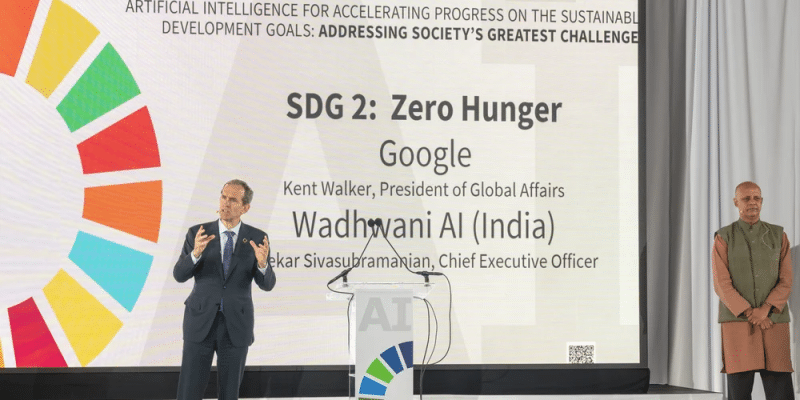Read in
Implementing Agenda 2030 is not just a matter for environmentalists and politicians. At least, that is the message being sent by the multinational technology companies attending the United Nations General Assembly, which continues in New York, United States of America. Among them is the American firm Google, which has announced the forthcoming launch of a research centre on climate-smart agriculture (CSA) designed to boost food security in Africa.
The American technology giant Google is not insensitive to the universal problem of food insecurity, which is the key challenge of the United Nations’ 2nd Sustainable Development Goal (SDG2). The American technology giant is therefore planning to set up a research centre on climate-smart agriculture (CSA).
The main mission of the AI Center platform will be to “solve food shortages in Africa”, at a time when agricultural productivity and yields are falling as a result of prolonged drought, among other factors. The initiative will initially benefit Eastern and Southern Africa, in particular Kenya and South Africa, the two pilot countries chosen by Google.
The multinational is also planning to fund 15 innovations there to the tune of $25 million. They will focus, for example, on the design and deployment of sensors to optimise irrigation, digital solutions for disseminating weather data to farmers, and mobile applications to boost the sale of their crops.
Google’s new research centre is a positive response to the expectations of the World Food Programme (WFP), which regularly alerts both private companies and political leaders to the need to invest in soil protection and the modernisation of agricultural practices to boost food security around the world. It is in this context that the UN agency is benefiting from the technical expertise of the Californian company, which is assisting it in the development of the Skai tool, satellite imagery for assessing natural disasters.
Benoit-Ivan Wansi



